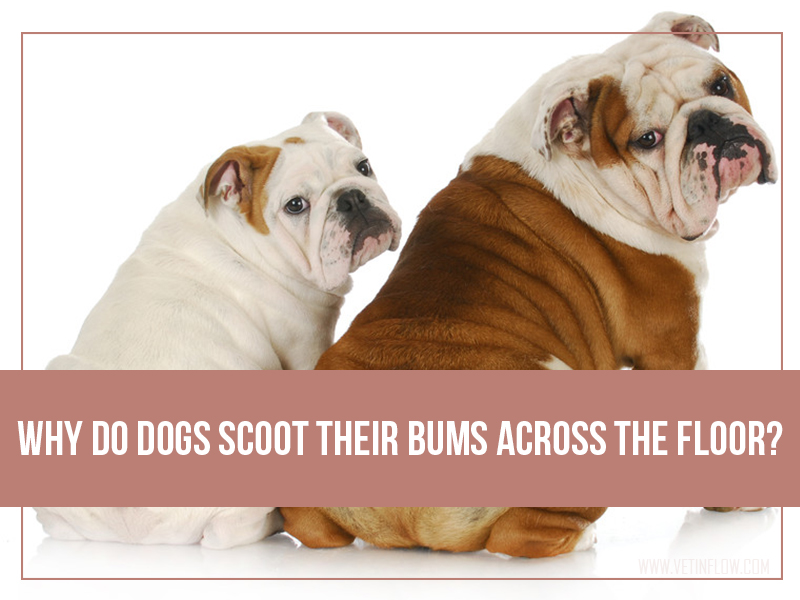
Why do dogs scoot their bums across the floor?
Most dog owners and pet lovers have seen or heard of this particular dog behaviour. It can be quite inconvenient especially if the beloved family dog drags his or hers bottom across the living room carpet.Dogs will scoot their bums along the floor when something is causing discomfort or irritation. This is a way for our pooches to somehow scratch themselves and find relief! There are several reasons why a dog may display this behaviour:
- One of the most common causes is anal sac impaction. Dogs have two glands located on either side of their anus that produce a smelly, fatty, dark substance. This fluid is supposed to be gradually released when there is a bowel movement but sometimes the fluid builds up. If their anal sacs become inflamed, blocked, infected and sometimes even abscessed it causes discomfort and pain. Other signs of discomfort due to anal sac problems include chewing or licking around the area, swelling around the anus and difficulty defecating.
- If for some reason their fur around that area becomes messy, it will also cause discomfort and irritation. This is very common if your dog is suffering from diarrhoea or constipation and long-haired dogs are especially at risk of getting mats and other coat issues.
- Another possible cause is the presence of parasites such as tapeworms. A dog will get infected by tapeworms when swallowing worm-infested fleas. These parasites will make their way through your pet's body and end up being eliminated along with the dog's faeces. The parasites (tiny, rice-like tapeworm segments) can often be seen on the dog's faeces or around the dog's anus and they will cause irritation.
If you notice that your dog often displays this behaviour or if you notice any other signs such as diarrhoea, swelling around the anus, frequent chewing or licking around the area and difficulty defecating please consult your vet. Treating the condition will not only make your pet feel much better but it will also stop this inconvenient behaviour.
Would you like to know more about dogs? Check our Canine Courses:
Canine courses
Read the previous article: Common health issues in the older horse


